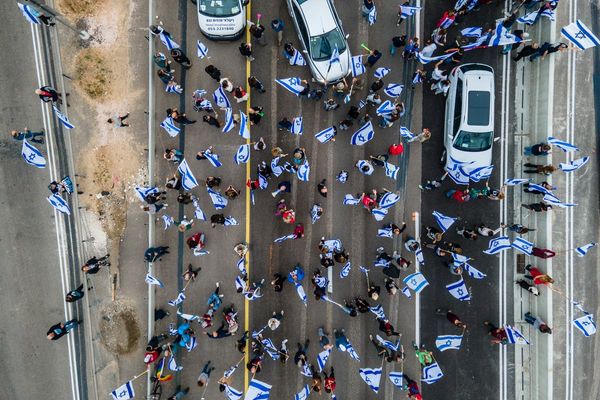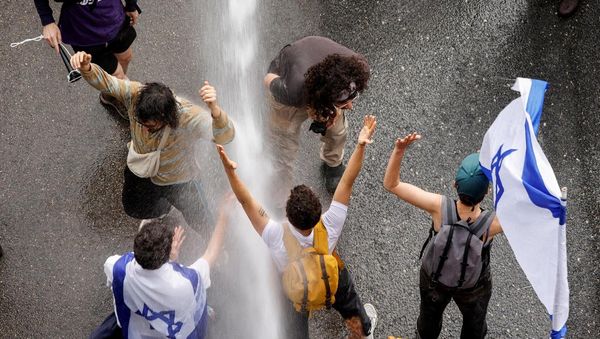
Protesters took to the streets in Israel on Thursday against hugely controversial judicial reforms including a law that prevents a prime minister being declared unfit to hold office.
Benjamin Netanyahu is pushing ahead with the changes, which give the government more powers over courts, while he is still facing trial on corruption charges.
The new law to protect Netanyahu passed in an early morning vote 61-47 in Israel’s Knesset after a debate that ran through the night.
Thousands waved flags and sounded horns in Tel Aviv, while police sprayed a water cannon and dragged some protesters away as they tried to clear a major highway. A small group burned tires in the street outside a seaport, briefly blocking trucks.
Dozens were detained across the country.
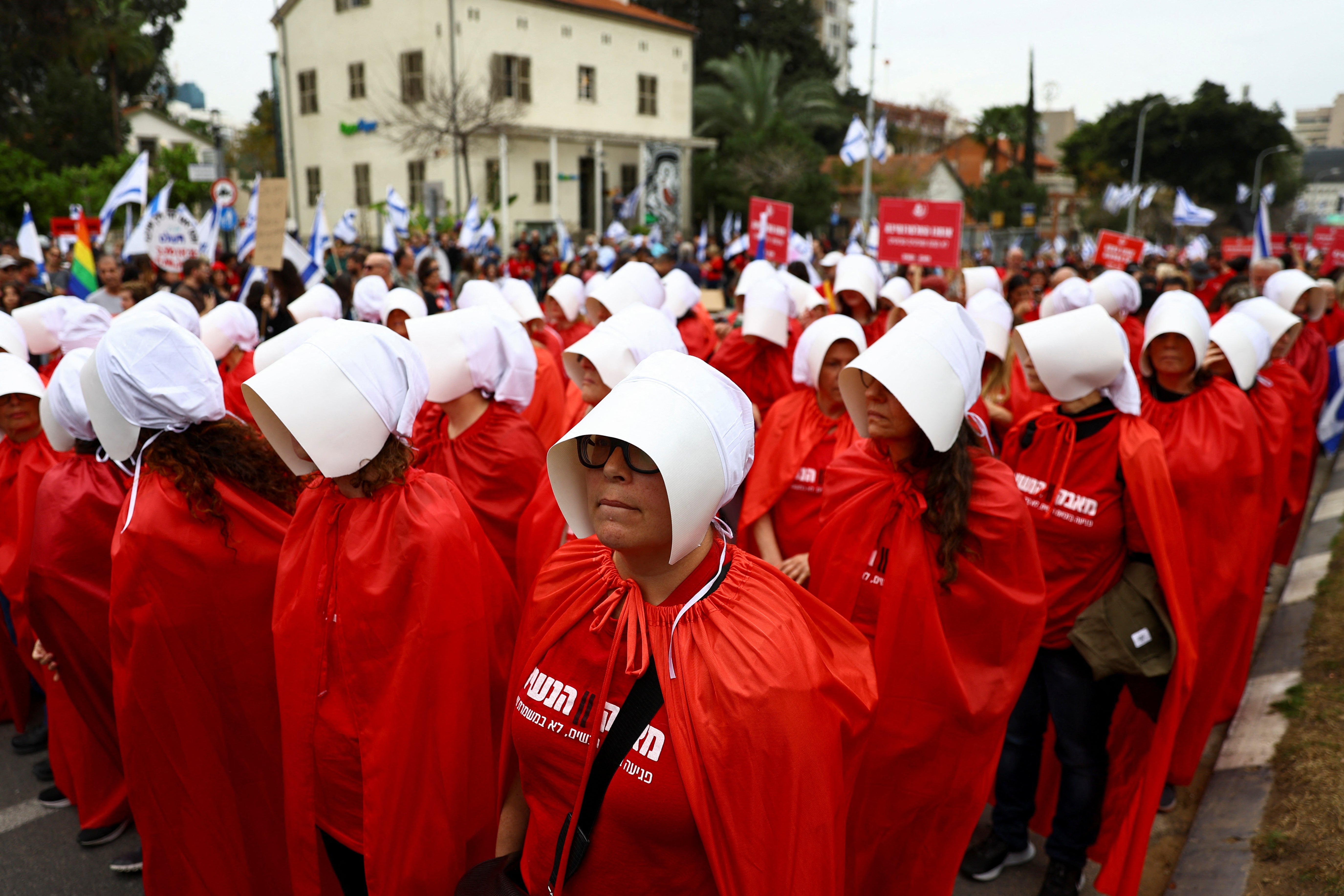
British prime minister Rishi Sunak was urged to use a meeting with Netanyahu in London on Friday to raise concerns about human rights and democracy amid the ongoing protests, and violent clashes between Israelis and Palestinians.
Shadow foreign minister Bambos Charalambous told the House of Commons: “In his meeting with prime minister Netanyahu, the prime minister has an option to use Britain's close relationship with Israel to take a clear stance on human rights, respect for international law, and commitments to democracy.
“Yet reading the recently signed road map for Israel-UK bilateral relations, I am deeply concerned that it dilutes longstanding UK positions held by successive governments in relation to international law.
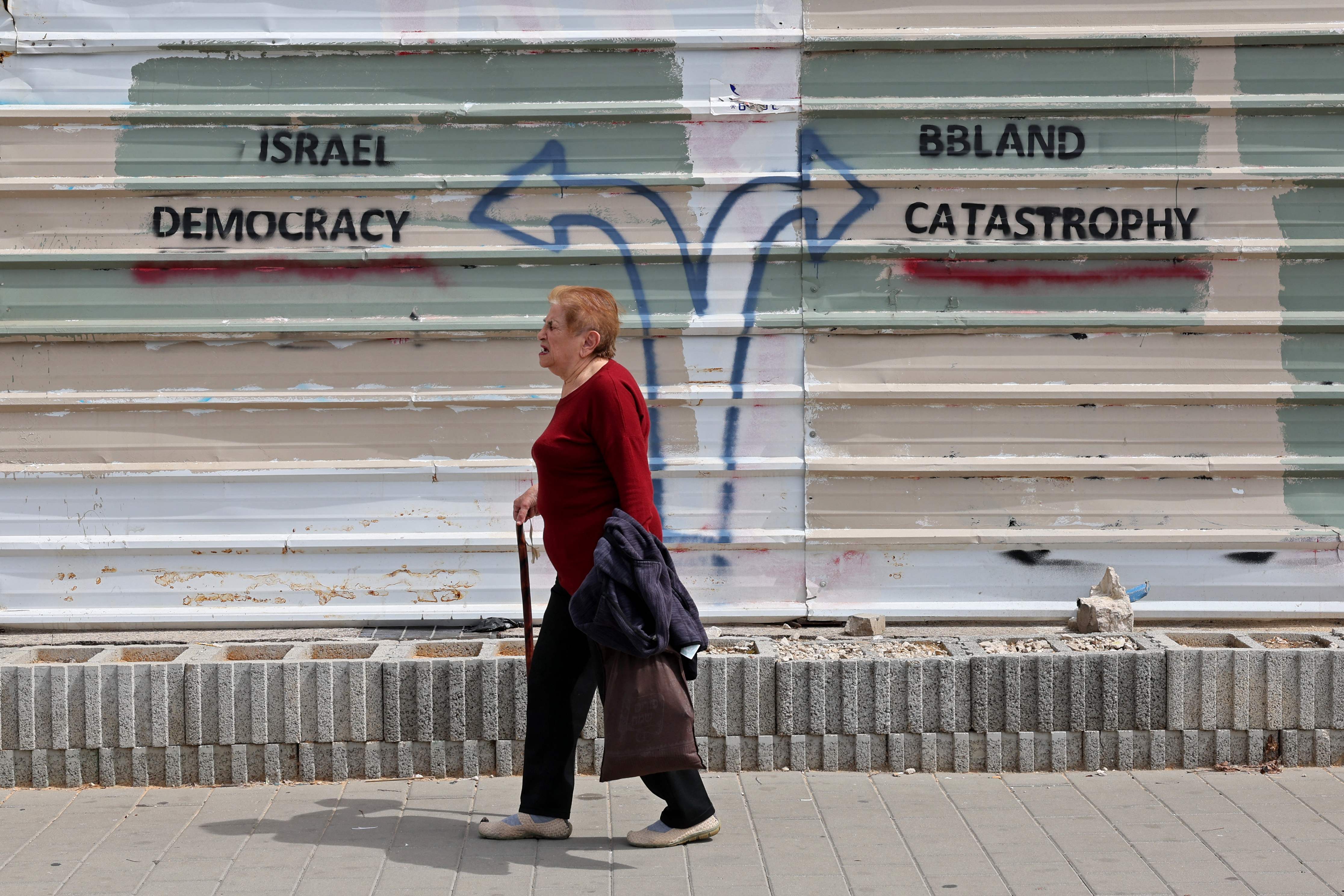
“The road map makes no mention of supporting a two-state solution and it implies that settlements in the occupied Palestinian territories could be treated as part of Israel for the purposes of trade.”
Foreign secretary James Cleverly this week signed an agreement aimed at deepening Britain’s security, trade and technology ties with Israel.
Foreign minister Anne-Marie Trevelyan insisted Britain wanted to see “a negotiated settlement leading to a safe and secure Israel living side by side with a viable and sovereign Palestinian state” but was unable to say if the agreement mentioned supporting a two-state solution.
SNP MP Anum Qaisar raised the death of Palestinian-American journalist Shireen Abu Akleh, fatally shot while covering an Israel Defence Force (IDF) raid in the West Bank in May last year.
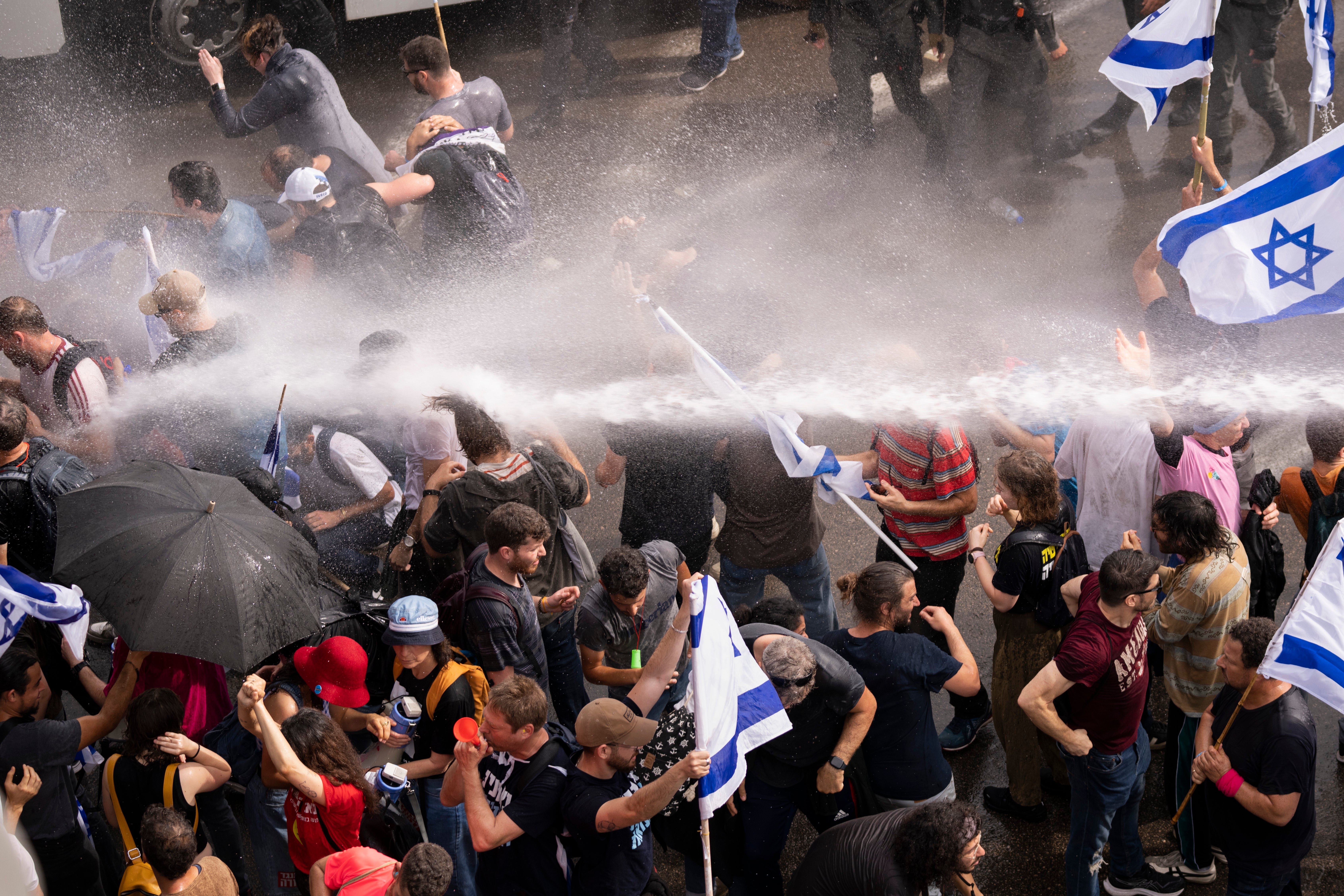
Ms Trevelyan replied the government is “committed to working with both Israel and the Palestinian authority to advance that peaceful two-state solution” but voted against bringing Abu Akleh’s case to the International Criminal Court “because we consider this is not helpful to bringing the parties back to dialog.”
Protests in Israel have escalated since Netanyahu's hard-right government introduced the new legislation, which he says is needed to restore balance between the branches of government. Critics say it will weaken Israel’s democracy and hand uncontrolled powers to the government of the day.
“Either Israel will be a Jewish, democratic and progressive state or religious, totalitarian, failing, isolated and closed off. That’s where they are leading us,” Tzipi Livni, a former foreign minister and a prominent supporter of the protest movement, said on Thursday.
In Jerusalem, crowds gathered along the walls of the Old City from which they hung a huge replica of the country's declaration of independence.
“What we are doing here is we are fighting for our lives. We are fighting for our lives as a Jewish people together in the state that we have been building for 75 years,” said Avidan Friedman.
Reuters and Press Association contributed to this report






